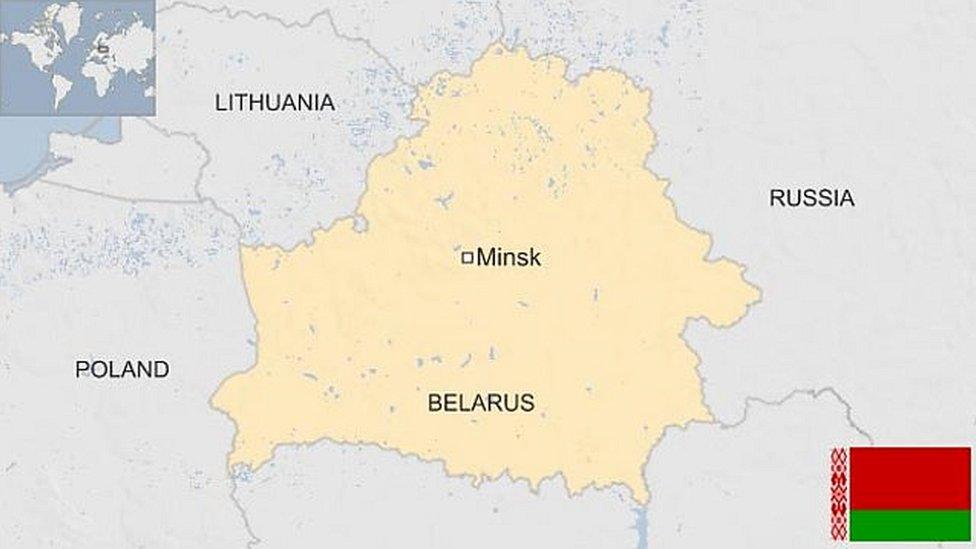Belarus: The secret executions in Europe's 'last dictatorship'
- Published
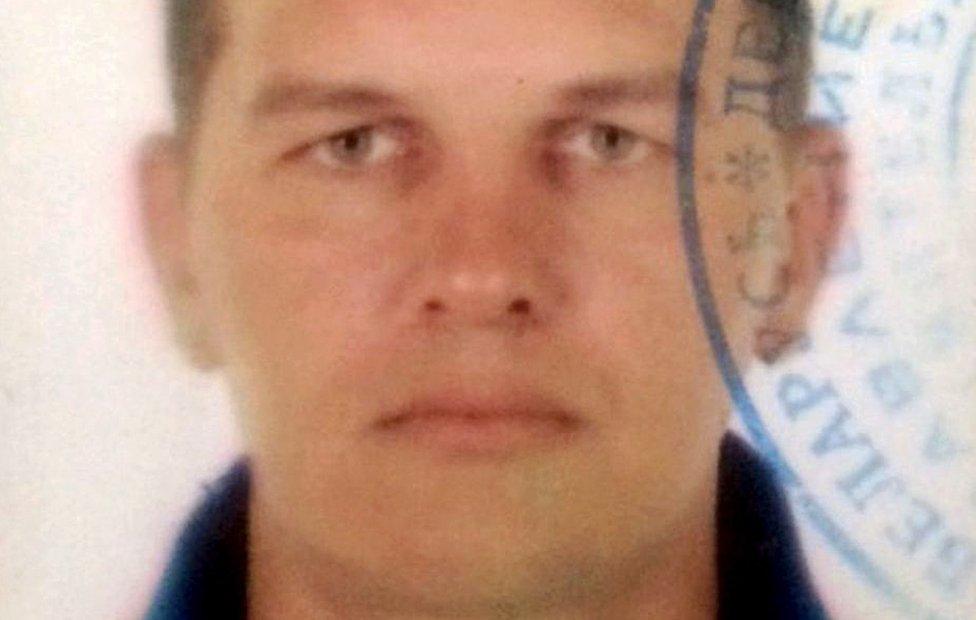
Gennady Yakovitsky was accused of murdering his 35-year-old partner during an argument

When the guards come, these inmates never know if it is for the last time. On death row in Belarus, the only country in Europe that still uses the death penalty, they are never told when they will be executed. And when it happens, it is all kept as a state secret.

For the 10 months he spent on death row, Gennady Yakovitsky could only tell whether it was day or night by the dim light filtering through the protective cover on the window of his cell, where the white lamps stayed on even while he slept.
It was easy to lose sense of time. He was held in isolation, any walk outdoors was forbidden. Visits were tightly controlled and, other than lawyers, only close relatives were allowed to see him, once a month.
On those days, Yakovitsky would be taken from his cell and escorted, hands cuffed behind his back, with guards forcing his face down. He, like all the others, was never told where he was going, said his daughter, Alexandra. They were kept guessing: "Is it to meet their relatives? Lawyers? To be shot?"
Father and daughter saw each other through a glass window, always closely watched by guards. "We didn't talk about the case, it was forbidden. We could only talk about family things." On one of her eight visits, Alexandra, then 27, complained to him about the long time it was taking to receive a new passport.
"The guards said sarcastically: 'You still have a little time left'."

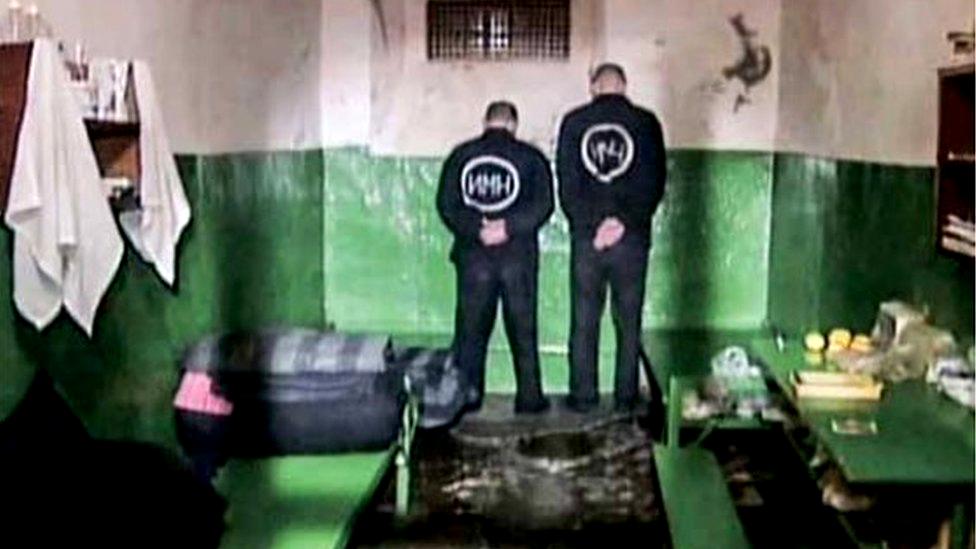
Very little is known about the inmates on death row: these were photographed in Minsk in 2006 in a cell thought to be no longer in use

Often described as "Europe's last dictatorship", Belarus is the only country in Europe and the former Soviet Union still to use the death penalty, and the process is shrouded in secrecy.
Executions are carried out by a shot in the head, but the exact number is unknown: more than 300 are thought to have happened since 1991, when Belarus became an independent country.
Two executions were carried out there last year, according to Amnesty International, and, currently, at least six men are believed to be on death row - under the country's laws, women cannot be sentenced to death., external
Those convicted, usually for homicides with aggravating circumstances, are kept in one of the high-security cells in the basement of Pre-trial Detention Centre 1, a jail set up in the building of a 19th Century castle, now partially collapsed, in the centre of the capital Minsk. Activists and journalists are rarely given any access.
There they face gross human rights violations, including "psychological pressure", with agents often using "torture and other cruel, inhuman and degrading treatment", a report by Viasna,, external a local human rights group, said in 2016.
Inmates are not allowed to lie or sit on the beds outside the designated sleeping hours, a former prison worker told the group, and spend most of their days walking around their cells. Even their right to send and receive letters is often said to be disrespected.
"The conditions are appalling," said Aisha Jung, Amnesty's campaigner on Belarus, who worked for a decade on the country's executions. "They're treated as if they're already dead."

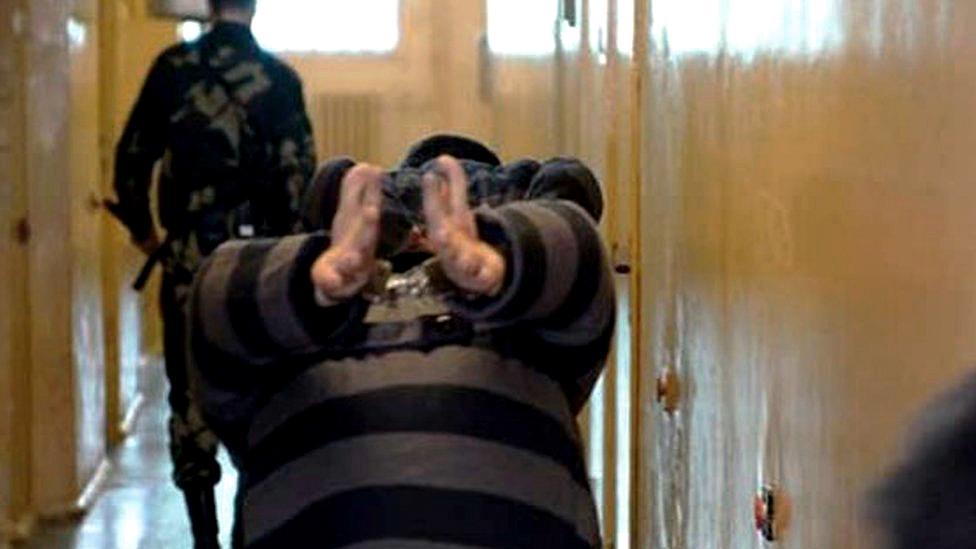
The inmates' human rights are systematically violated, activists say. These were pictured in Jodinsk prison in 2006

Gennady Yakovitsky, who lived in Vileyka, a town about 100km (60 miles) from Minsk, had been accused of killing his 35-year-old partner in their flat after two days of drinking with friends in July 2015, according to reports by human rights groups.
After an argument, in which he allegedly struck her several times with his fists, they went to a separate room, where Yakovitsky fell asleep. What happened next he said he could not remember.
When he woke up, he found her already dead, with a broken jaw and partially naked. He dressed her in her jeans that contained bloodstains that had not been there before, the reports claimed, and alerted the police. Three days later, he was arrested.
Activists said that Yakovitsky faced psychological pressure during his first interrogation and that the people who were in the flat at the time gave contradictory testimony. "Some witnesses were drunk in court," his daughter said. "[Later] they said they couldn't remember what happened. No evidence was provided".
Yakovitsky had already been sentenced to death for murder in 1989, but this was commuted to a 15-year jail term. Alexandra said the court in Minsk had used this as "the main proof" against her father.
In January 2016, he was found guilty of a second murder, which he denied, and sentenced to death.


The inmates on death row are held at Minsk's Pre-trial Detention Centre 1

On execution day, prisoners are told by a public prosecutor that their appeal for a presidential pardon has been rejected. Aleh Alkayeu, former head of the prison where the executions are carried out, told Viasna: "They trembled either from cold or from fear, and their crazy eyes radiated such a real horror that it was impossible to look at them."
The inmates are blindfolded and taken to a specially-arranged room where access is restricted only to those allowed by the prosecutor: never a member of the public, according to accounts from former agents.
They are then forced to their knees and shot dead.
The whole procedure is said to last some two minutes. Only weeks or even months later are their relatives informed. In some cases, this happens when a box is sent by mail with some of the convict's personal belongings.
The bodies are never returned to the families and the locations where they have been buried remain a state secret, a violation of the human rights of the inmates and their relatives, UN special rapporteur Miklós Haraszti said in 2017., external This, he added, amounted to torture.

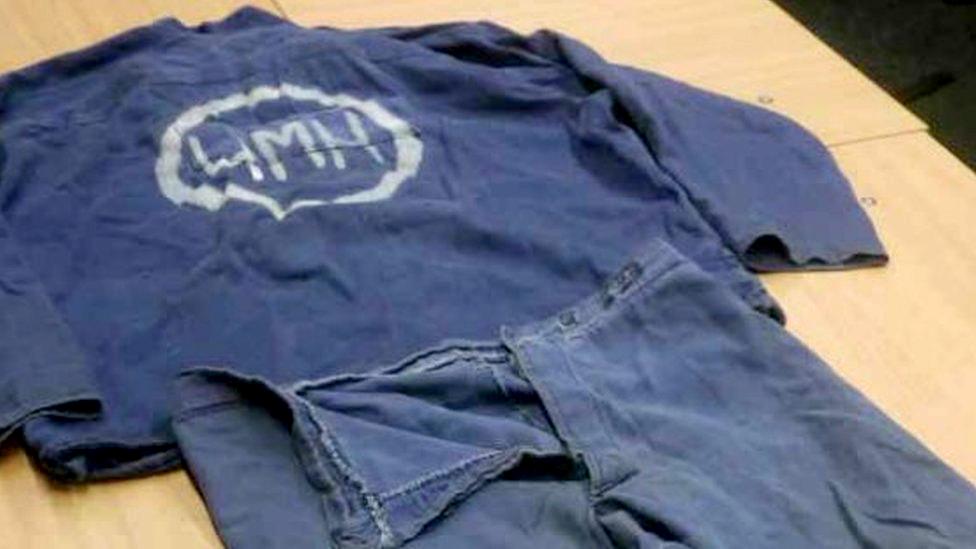
Some relatives find out that the executions have been carried out only when a box with the inmate's belongings arrives by post

In a referendum in 1996, 80% of Belarusians were against abolition of the death penalty. The result was not recognised internationally because, as with any other vote in Belarus, there were claims of widespread violations.
The government of President Alexander Lukashenko, in power since 1994, still uses this result to justify its policy and has made any change conditional on another popular vote. Meanwhile, a group in parliament is now discussing what can be done, but observers say it may take some time before any decision is taken.
Until then, Belarus is likely to remain the only European country outside the Council of Europe, the continent's top human rights watchdog.
"Ultimately Belarus will have to choose the way it's going to abolish the death penalty," said Tatiana Termacic, from the Council's Human Rights and Rule of Law Directorate. "It's on the way towards abolition and we hope it'll be sooner rather than later."
Yet, she said, it was a "black stain" on a continent almost totally free of the death penalty.
Recent polls in Belarus suggest public support for capital punishment has fallen as campaigns have raised awareness. There was an outcry of sorts in 2012, when two men were put to death for a deadly bomb attack on the Minsk metro a year earlier.
Nevertheless, between 50% and two-thirds of people are believed to still favour the practice.
"More and more people are speaking against the death penalty," said Andrei Paluda, co-ordinator of the campaign Human Rights Defenders against the Death Penalty in Belarus. "But the government is using the fact that it's the last European country where the death penalty is applied in order to force European countries to negotiate."
The president's office did not respond to a series of BBC requests for comment.

Read more about Belarus

Gennady Yakovitsky's lawyer appealed to the Supreme Court against his conviction, arguing the trial had not been fair and his guilt had not been unequivocally established. He was quoted as saying vital evidence had been omitted, including a forensic examination that had found traces of unidentified blood under the victim's nails.
But the court upheld his sentence and, in November 2016, Yakovitsky was executed, at the age of 49.
A month later, his family received a letter by post confirming that the sentence had been carried out. "I didn't receive his personal belongings, we didn't see the body," said Alexandra who now campaigns against the death penalty in Belarus.
"I had given him photos," she said. "I got nothing back."
.
- Published17 October 2016
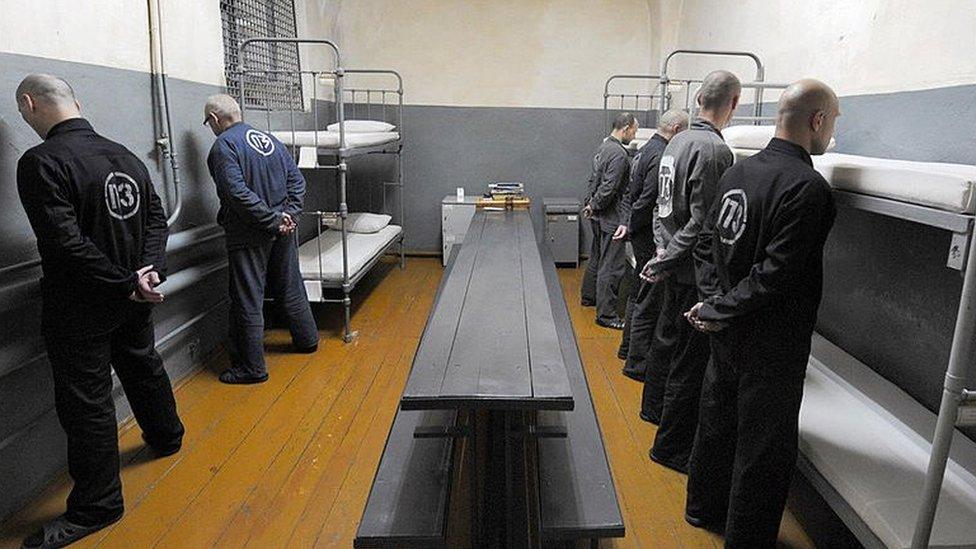
- Published22 October 2012
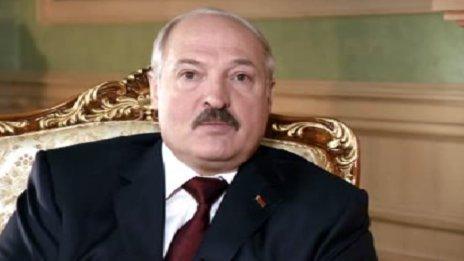
- Published27 January
